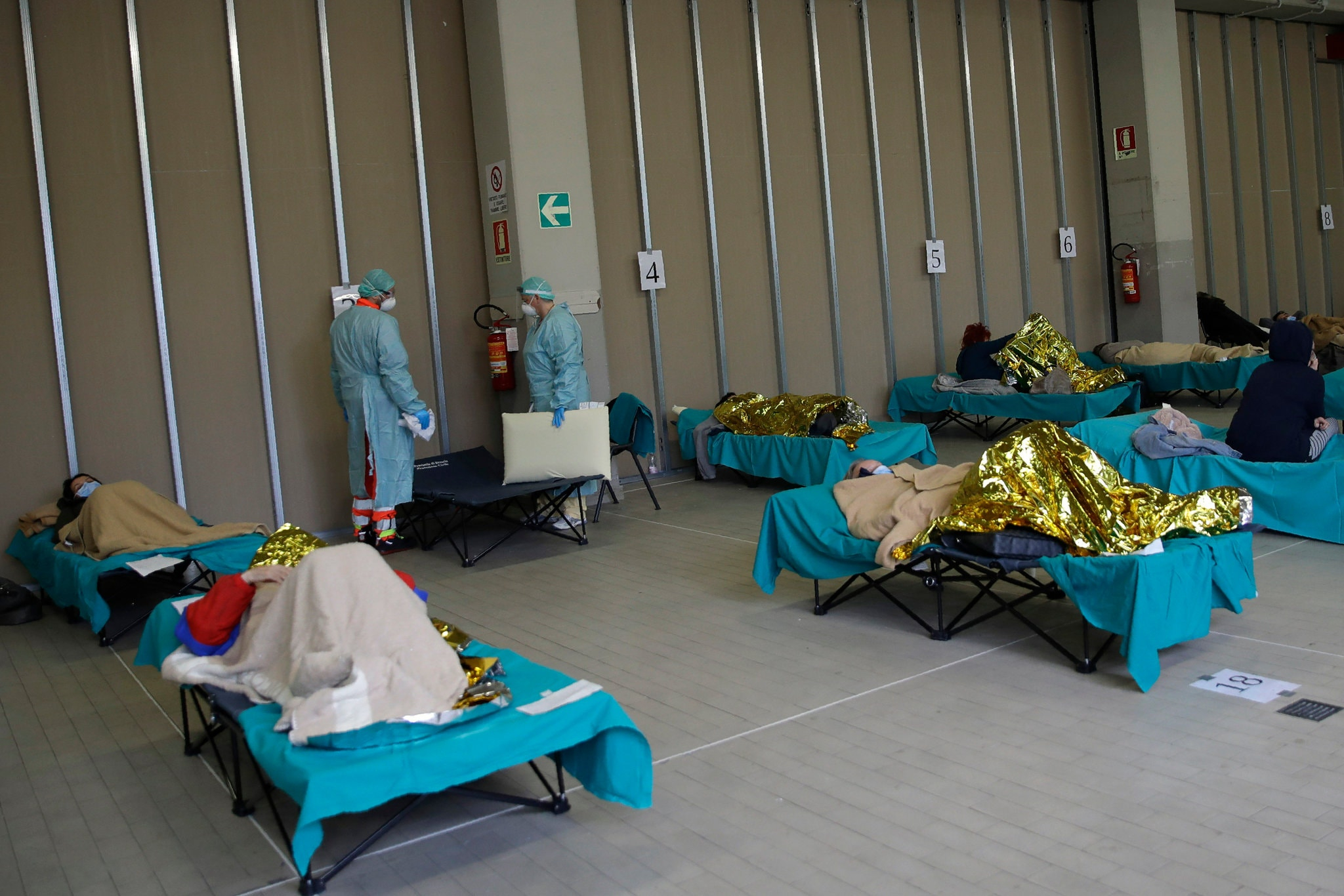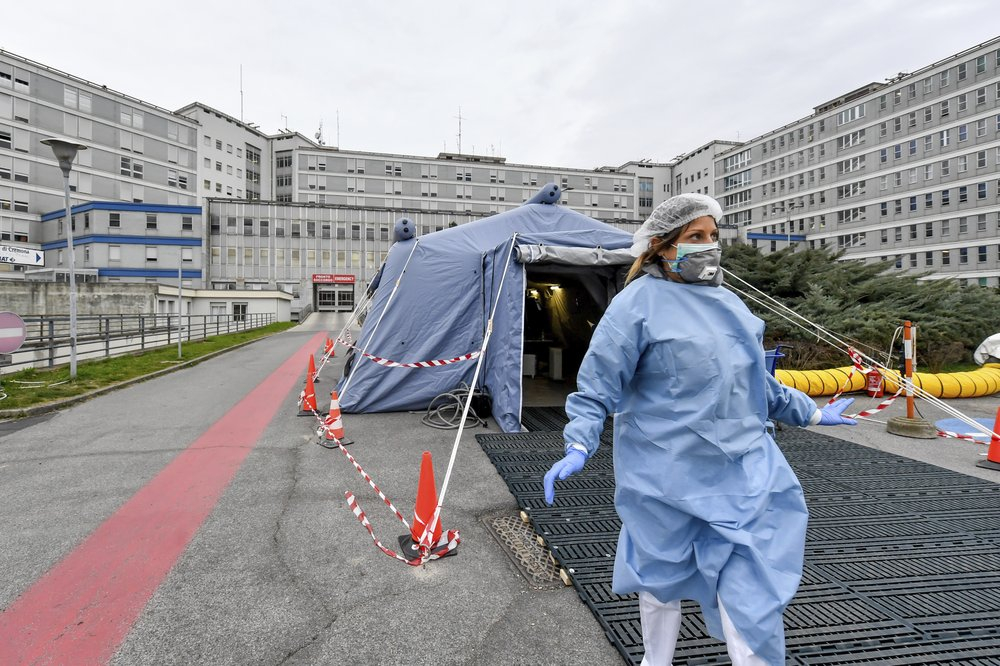
A makeshift emergency unit at the Brescia hospital, in northern Italy, March 12, 2020. /AP
A makeshift emergency unit at the Brescia hospital, in northern Italy, March 12, 2020. /AP
Italian authorities voiced growing concern on Sunday over how much longer strained health systems could cope with the coronavirus outbreak, as thousands of new cases were recorded over the past 24 hours and hundreds more people died.
"The numbers have continued to grow. We're close to the moment where we will have no more intensive care beds," Lombardy's regional president Attilio Fontana told reporters.
The mayor of one town in the region also complained that doctors were forced to decide not to treat the very old, leaving them to die.
With 24,747 cases and 1,809 deaths by Sunday – a rise of 368 in the death toll in just 24 hours – Italy's experience has offered an alarming example for other European countries that even hospitals in developed countries with the world's best health care risk becoming triage wards, forcing ordinary doctors and nurses to make extraordinary decisions about who may live and who may die.
The head of the civil protection authority, Angelo Borelli, said that he was so far unaware of any cases of patients dying in Lombardy because of a lack of intensive care facilities. But he added that the health systems in Lombardy and in other regions such as Emilia Romagna and Veneto at the epicenter of the Italian outbreak have been pushed to their limits.
Italian Prime Minister Giuseppe Conte said the government is working urgently on procuring more protective equipment, adding there was maximum attention on helping Lombardy.
Lombardy, the heavily populated area around the financial capital Milan, is the place the virus emerged three weeks ago and has been the worst-affected region with 1,218 deaths. Of those, 252 were recorded in the last 24 hours. Alarmingly, 10 percent of Lombardy's doctors and nurses cannot work because they tested positive for the virus and are in quarantine, according to the region's top health official, Giulio Gallera.
Lombardy's regional government has asked the central government to reactivate retired doctors and nurses and get them back on the payroll. In addition, nursing students who were due to take their final exams next month are now expected to graduate in the coming days so they can be immediately put to work.
Private hospitals in Lombardy have offered up beds in intensive care units and more than a dozen doctors from the private sector have agreed to work in public hospitals to ease the crisis, Fontana said. Regional authorities have asked Lombardy's hospitals to reduce by 70 percent their planned or elective surgeries, to free up ICU beds for virus patients.

A paramedic walks out of a tent that was set up in front of the emergency ward of the Cremona hospital, in northern Italy, February 29, 2020. /AP
A paramedic walks out of a tent that was set up in front of the emergency ward of the Cremona hospital, in northern Italy, February 29, 2020. /AP
Italy has the most elderly population in Europe, with almost a quarter aged 65 and over, rendering it especially vulnerable to a disease that has predominantly killed older people. In less than three weeks, the coronavirus has overloaded the health care system all over northern Italy. It has turned the hard hit Lombardy region into a grim glimpse of what awaits countries if they cannot slow the spread of the virus.
So far, most cases in Lombardy have been in small towns in areas like Bergamo and Brescia, but there have been fears of a major spread into Milan itself, which could overwhelm hospitals.
"The big challenge will be to see how far we can succeed in keeping Milan, the metropolitan area, away from a mass phenomenon with the disease," said Massimo Galli, head of the infectious diseases unit at the city's Sacco hospital.
Authorities have been working to set up hundreds of intensive care beds in a specially created facility in the Fiera Milano exhibition center but are still waiting for sufficient respirators and qualified personnel.
Behind the concern for the north, there was also a looming worry over the much less well-equipped south, where tens of thousands of people have arrived from the affected regions.
Nello Musumeci, president of the Sicily region, said at least 31,000 people had arrived from northern and central areas in the past 10 to 12 days and registered with authorities but the real number was much higher.
(With input from agencies)